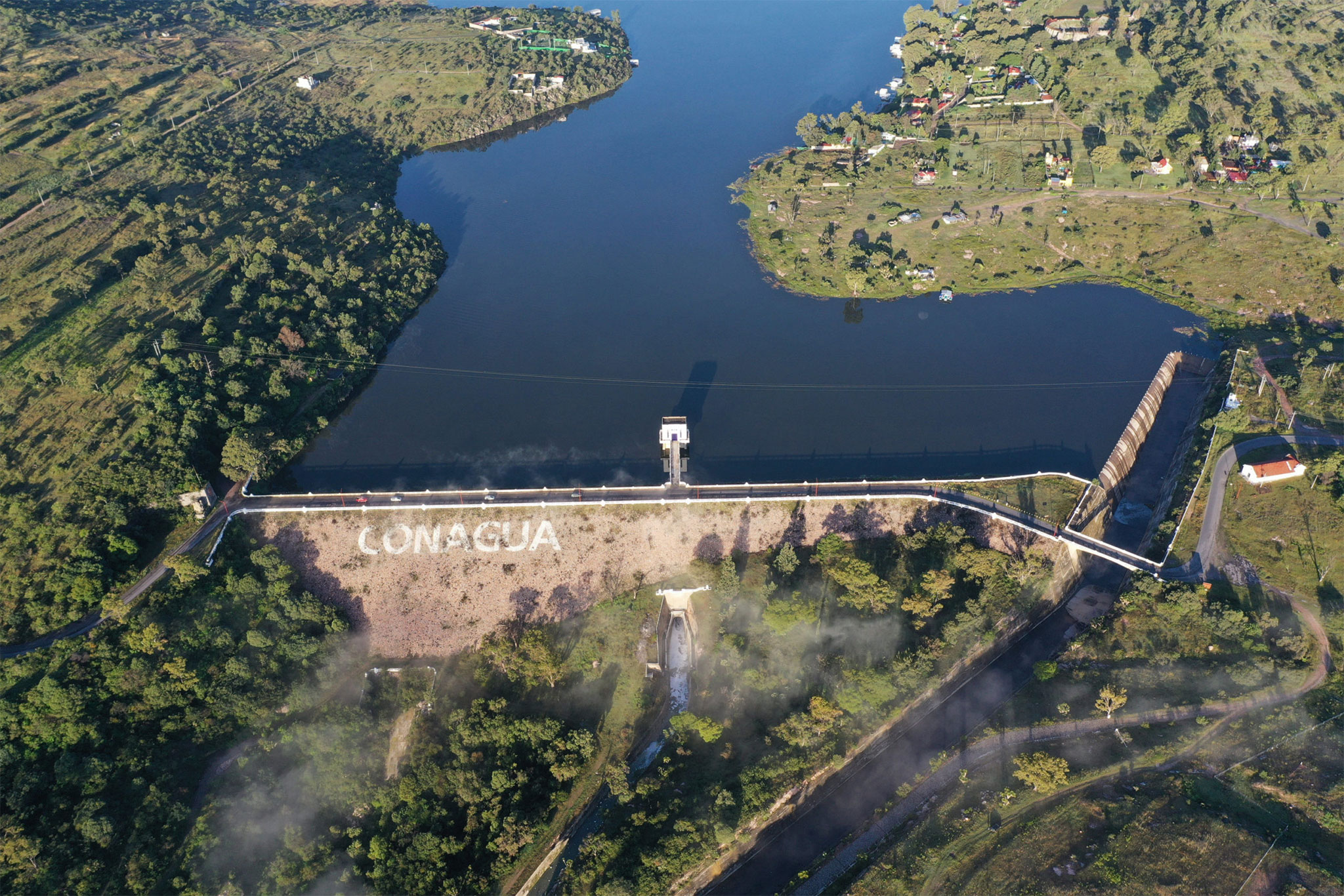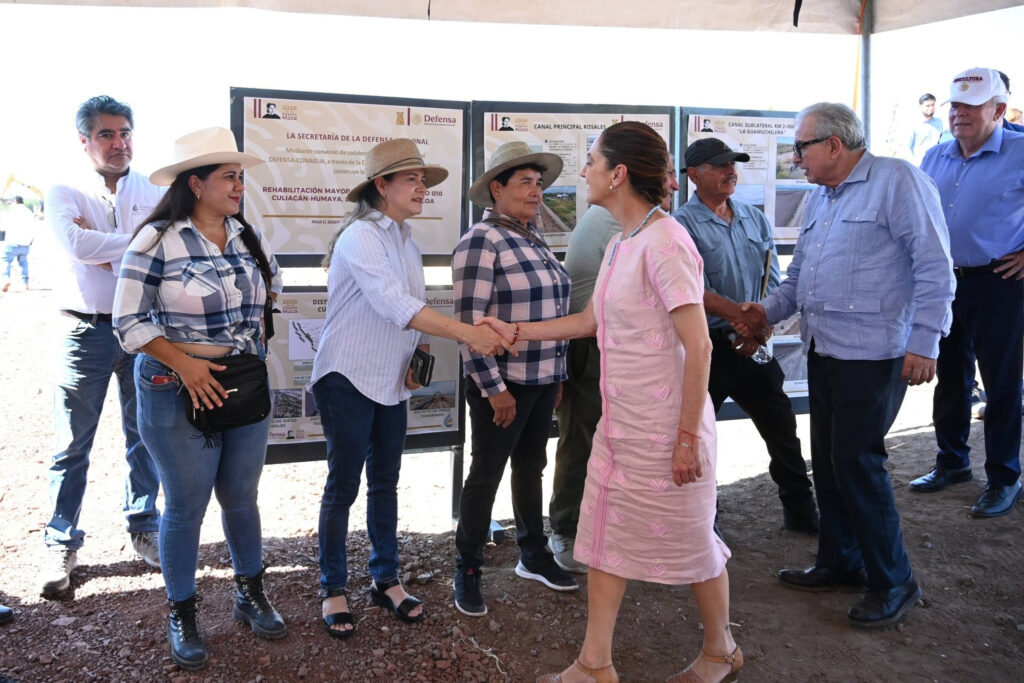President Sheinbaum Instructs CONAGUA to Halt Mining Waste Concessions
This article by Nancy Flores originally appeared in the October 27, 2025 edition of Revista Contralínea and is a follow-up from a story we translated and republished on October 21, CONAGUA Wants Mining Industry to be Allowed to Dump Toxic Waste into Rivers.
The deputy legal director of the National Water Commission (CONAGUA), Óscar Jovanny Zavala, confirmed that President Claudia Sheinbaum ordered the institution to halt the reform of Article 118 of the National Water Law, which would have allowed the mining industry to grant concessions to dump its toxic waste into rivers and bodies of water.
Participating in a closed-door meeting with members of the Chamber of Deputies’ Commission on Water Resources, Drinking Water, and Sanitation, the CONAGUA official stated, verbatim: “On the mining issue, the President has already issued instructions: it is an issue that must be reviewed.”
It also revealed that what was going to be reversed was a progress achieved during President Andrés Manuel López Obrador’s six-year term: in 2023, an express prohibition was established on granting concessions for mining companies to dispose of their highly toxic waste in tributaries.
In this regard, Oscar Jovanny Zavala told the legislators present at the meeting: “That paragraph [prohibiting mining industry concessions] was added in 2023; it hadn’t been there before. It’s a paragraph added to the 2023 reform on water for mining use; the paragraph didn’t come from the original text, so that’s a point worth clarifying. But the President’s instruction is already in place, and it will be reviewed to address this circumstance as she requested.”
On October 21, Contralínea asked President Sheinbaum if this initiative, which sought to overturn that ban and would have allowed the mining industry to pollute tributaries—as occurred with the Grupo México spill in the Sonora River—could be reviewed. The President responded: “It needs to be reviewed. If that’s how it’s worded, it needs to be reviewed. The objective of the National Water Law is essentially to prevent the commercialization of water, or the transfer of a concession from one private entity to another. That’s the main objective of that law, in addition to updating certain issues. But this article, of course, must be reviewed because it shouldn’t be as it’s written.”
As this weekly revealed on October 20, CONAGUA was pushing for legislative changes that would empower it to grant concessions to this extractive industry to dump its waste into tributaries and water bodies, despite these being priority reservoirs for human and animal life.
Literally, the Commission headed by Efraín Morales proposed amending Article 118 of said law to establish that the water authority will have the power: “for the granting of concessions over waterways or reservoirs and their federal zones, for the final disposal of mining waste and deposits of wastewater for mining use, the necessary protection measures for population centers, productive areas, bodies of water or ecosystems must be accredited.”
According to the Parliamentary Gazette —published by the Chamber of Deputies on October 9, which announced the presidential initiative issuing the General Water Law—the current text, in its Article 118, prohibits such permits: “The water authority is prohibited from granting concessions over waterways or reservoirs and their federal zones for the final disposal of mining waste or wastewater deposits for mining use.”
Today, the President’s instruction to review the drafting of the proposed reform to Article 118 of the National Water Law was implemented at the working meeting of the Water Resources Commission, where a technical and legal analysis of the reforms, repeals, and additions to various provisions of the General Law on National Waters was conducted.
In addition to Óscar Zavala Gamboa, deputy general legal director of Conagua, Dr. José Alberto López Damián, representative of the Legal Counsel of the Federal Executive Branch, participated in the meeting with legislators. The officials listened to the questions and observations the deputies raised regarding the new initiative.
According to those attending, this closed-door meeting was held following President Sheinbaum’s instruction to review Article 118, which authorizes granting concessions for mining companies to channel their waste into federal channels.
The legislators’ questions focused on over-concessioning and marginalization of water resources, the guarantee of the right to water for indigenous communities, permissiveness toward large concessionaires, and the risk of the extinction of ejido and small-user concessions.
The working session lasted approximately four hours, and during it, Representative Gabriel García Hernández proposed holding an open citizens’ parliament to enhance the initiative. The legislator also presented a document from the national coordinator Water for All, which proposes adjustments to prevent the risk of water shortages in the country.
-
People’s Mañanera March 2
President Sheinbaum’s daily press conference, with comments on electoral reform, the gradual move to a 40 hour workweek, employment, national security strategy, and once again, the call for peace.
-
Mexican Delegation To Participate in April Global SUMUD Flotilla to Gaza
The aim is to work towards ending the genocide that the Israeli government—with the support of the governments of the EU & the fascist US government—is carrying out against the Palestinian people.
-
Workers Party Claims Sheinbaum Electoral Reform Will Eliminate Party System
The socialist party’s leader recalled the democratic spaces that the left managed to conquer with the 1977 & 1996 reforms, a “fruit of countless struggles, repressions, imprisonments, disappearances and even armed uprisings.”




